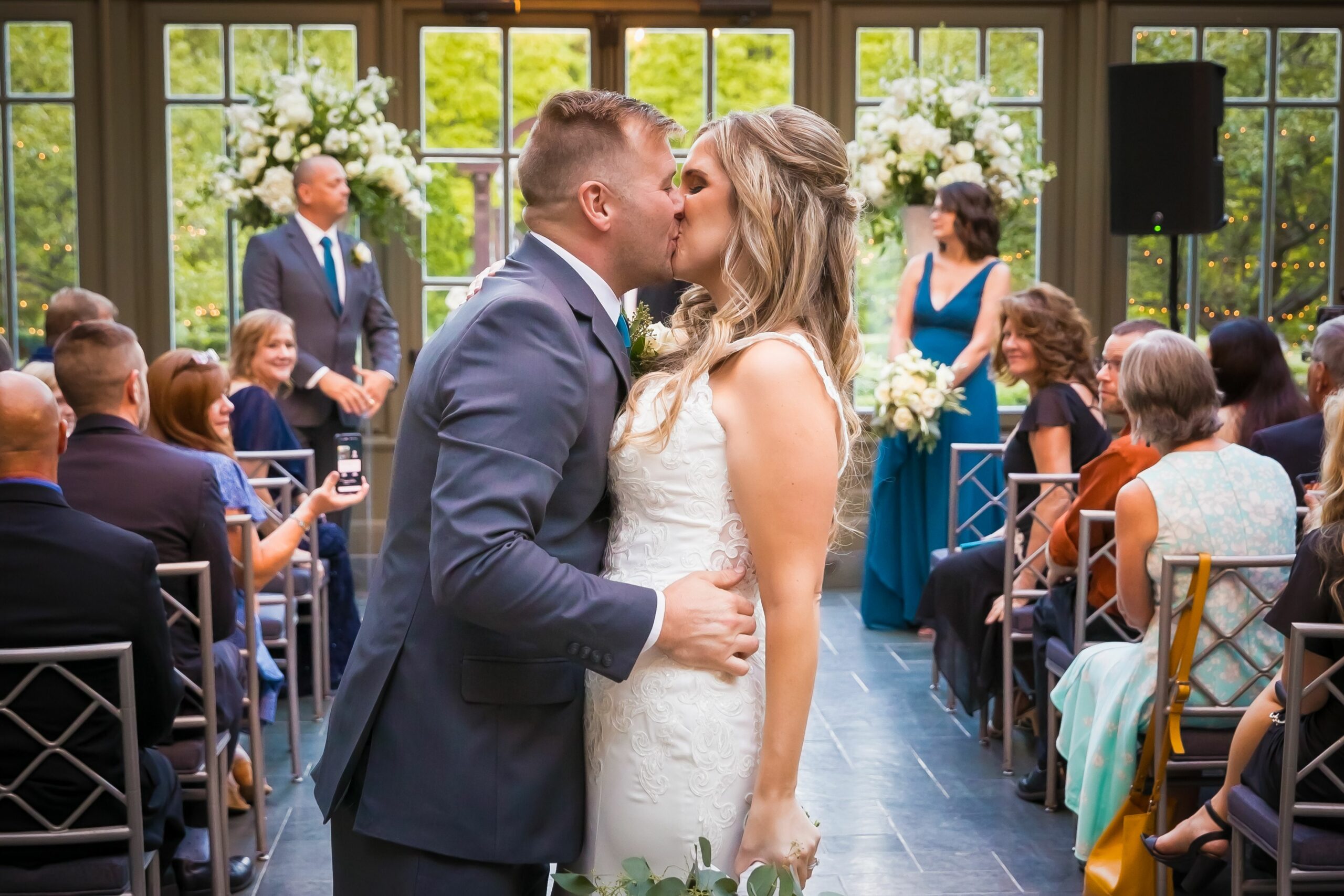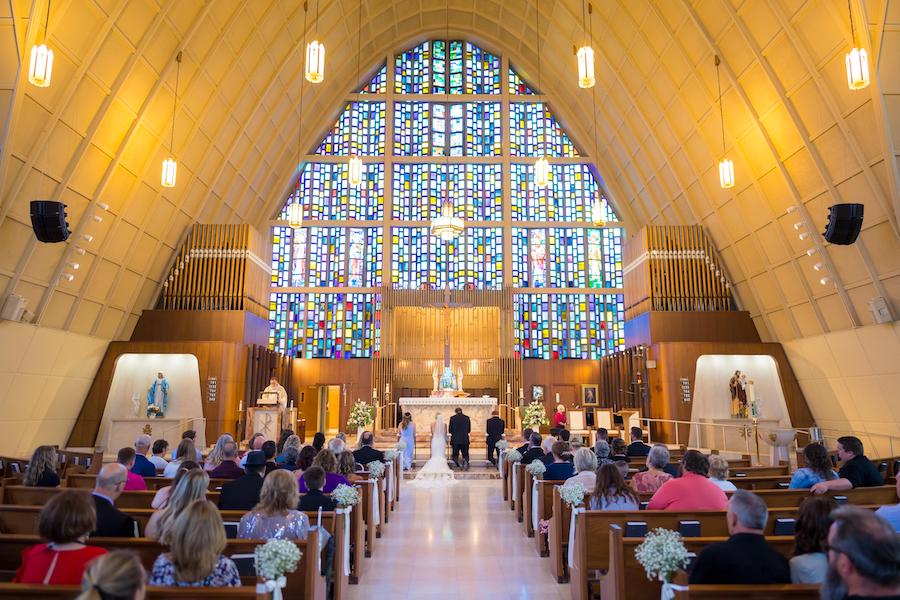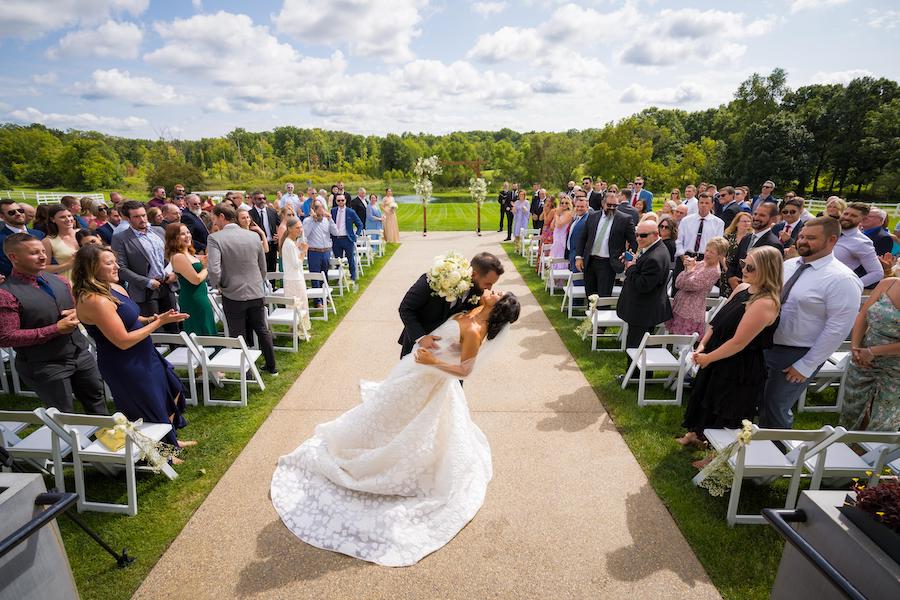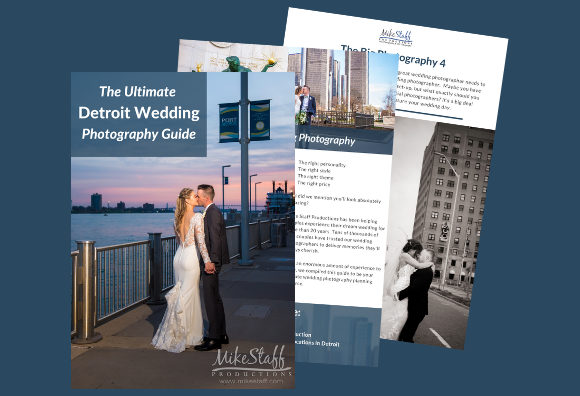The Ultimate Wedding Ceremony Upgrade: Professional Wedding DJ
When it comes to orchestrating the perfect wedding ceremony, every detail counts, especially the music. That’s where your Detroit wedding DJ steps in, not just as a provider of tunes, but as a vital coordinator for your onsite wedding ceremony. Consider the DJ, in this case, as the conductor of your wedding ceremony. Ensuring every cue is hit with precision, from the moment your guests arrive until you make your grand exit as a married couple. Your wedding ceremony deserves more than a handful of speakers, a low-quality sound system or hard-to-hear background music. In this blog, we explore the reasons why a professional DJ is not just important but essential for your wedding ceremony outside the traditional church setting.

10 Benefits of Having a Professional DJ at Your Onsite Wedding Ceremony
- Creating the Perfect Ambiance: A professional DJ excels in setting the right tone for your ceremony, carefully selecting music that enhances the atmosphere. Whatever vibe you’re aiming for, our professional wedding DJs tailor the playlist to match your desired ambiance, ensuring the music flawlessly complements the setting and moment.
- Seamless Transitions: Throughout the ceremony, from the prelude to the recessional, a DJ ensures that each phase transitions smoothly into the next. They manage the timing and flow of music so that key moments are highlighted with the appropriate soundtrack, avoiding any awkward silences or abrupt changes that could disrupt the ceremony’s emotional impact.
- Professional Sound Quality: Outdoor venues and unique spaces often present acoustic challenges that a professional DJ is equipped to handle. With high-quality sound systems and expertise in audio setup, the DJ ensures that the music, vows, and readings are heard clearly by all guests, regardless of the venue’s layout or ambient noise.
- Customization to Your Taste: A professional DJ takes the time to understand your musical preferences and the significance of specific songs in your relationship. This personalized approach means that every piece of music played during the ceremony resonates with personal meaning, making the moments even more impactful. Check out our Metro Detroit Wedding Music Guide to select the perfect songs for your wedding ceremony.
- Technical Expertise: From the proper placement of speakers to adjusting volumes for optimal sound, a DJ’s technical skills are crucial in a non-traditional venue. They adeptly manage the audio logistics, so the focus remains on the ceremony itself, not on the mechanics of sound reproduction.
- Adaptability: Unexpected changes in timing or program flow are not uncommon during a wedding ceremony. A professional DJ is adaptable, able to quickly adjust the music and maintain the ceremony’s flow without missing a beat, ensuring that any deviations from the plan go unnoticed by guests.
- Ceremony and Reception Cohesion: When a DJ is involved in both the ceremony and the reception, there’s a cohesive musical and atmospheric transition between the two parts of the wedding. This continuity enhances the overall experience, making the day feel more unified and thoughtfully curated.
- Stress Relief for the Couple: Knowing that a professional is in charge of the music allows the couple to focus on the significance of their vows and the joy of their ceremony. Entrusting this aspect to a wedding DJ relieves stress, knowing that the soundtrack of their most meaningful moments is in capable hands.
- Microphone Management: For outdoor or larger venue ceremonies, ensuring that vows are heard can be a challenge. A DJ provides microphones and manages their levels so that the couple’s vows, the officiant’s words, and any readings are audible to all guests, creating an intimate experience even in a spacious setting.
- Reliability and Peace of Mind: With a professional wedding DJ, couples have the assurance that the music and sound for their ceremony are managed reliably. This peace of mind is invaluable, allowing them to immerse fully in the significance of their vows and the celebration of their union.
Venue and Outdoor Weddings vs. Church Ceremonies: A Comparison
Many churches and religious buildings in metro Detroit are equipped with their own sound systems designed to handle the acoustics of the space. This can include microphones for the officiant and the couple, ensuring everyone is heard clearly during the ceremony. It’s common for these venues to have an organist or choir as part of their regular staff or congregation, providing traditional religious music.

The music selection often follows established religious traditions, which may not require the versatility of a wedding DJ. Keep in mind, most religious venues in metro Detroit have strict rules regarding music, attire, and decor. These guidelines can extend to the types of music allowed during the ceremony, often limiting the need for a DJ who might play more contemporary or varied music.
Couples choosing non-religious venues or outdoor settings have the benefit of creating a personalized ceremony that reflects their unique relationship and preferences. A professional wedding DJ can curate a soundtrack that aligns with their vision, from the pre-ceremony ambiance to the recessional music.
- Challenges of Outdoor Acoustics: Outdoor settings and unconventional venues can present significant acoustic challenges, from wind noise to the lack of walls for sound reflection. A professional DJ brings the equipment and expertise needed to ensure music and vows are audible and clear, regardless of the setting.
- Seamless Transitions: Unlike in a traditional church setting, ceremonies in these venues might include more moving parts, such as transitioning from different areas for the ceremony, cocktail hour, and reception. A DJ can manage these transitions smoothly, maintaining the desired atmosphere throughout the event.
- Technical Support for Readings and Vows: In addition to music, DJs provide microphones and sound support for readings, vows, and announcements. This technical support is crucial in non-religious venues, where such infrastructure might not be readily available.






